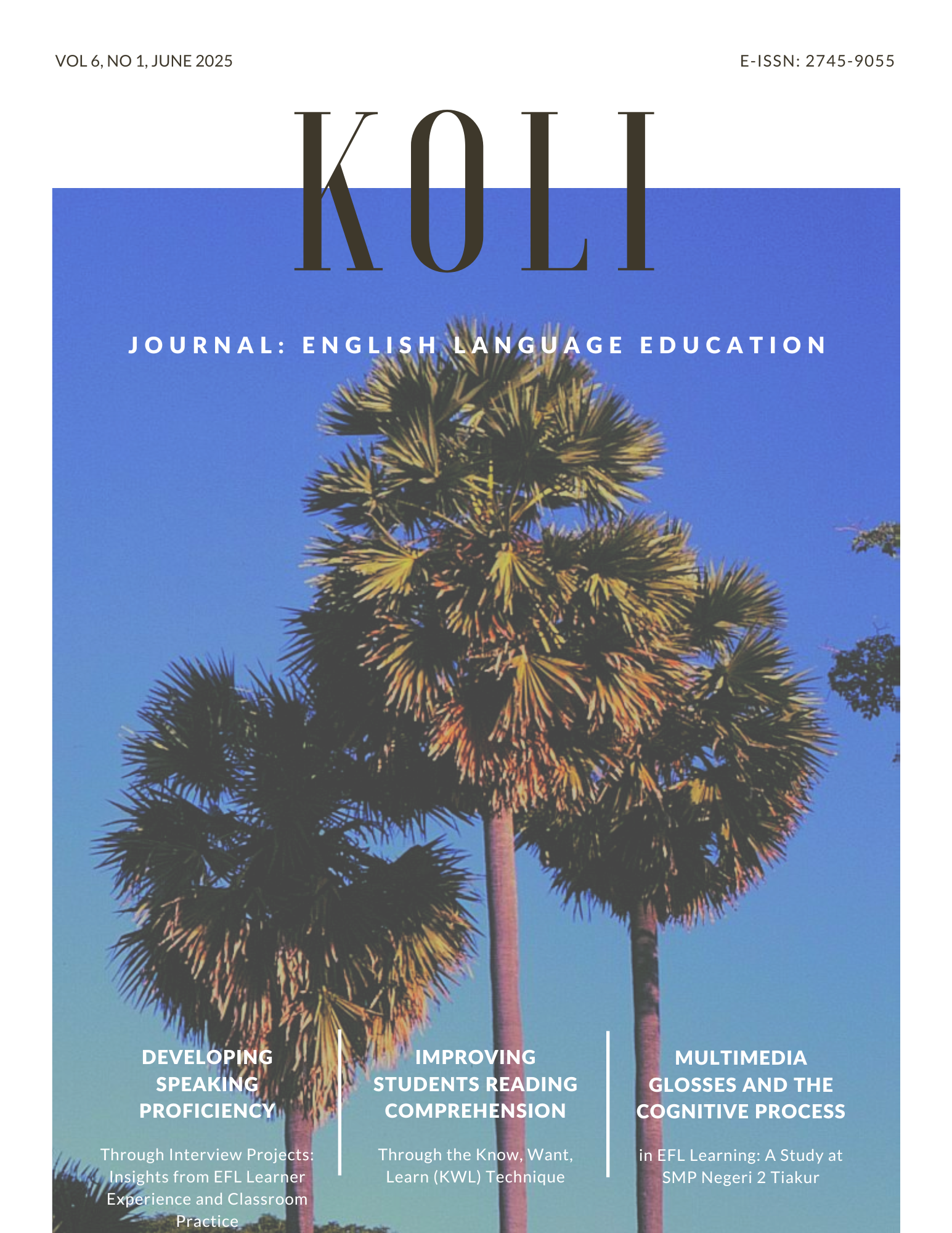Implementing Problem-Based Learning In English Language Teaching: A Case Study Of Teacher Experiences
Abstract
The use of Problem-Learning (PBL) has become increasingly important in language education as it encourages student engagement, collaboration, and the development of critical thinking skills. However, there remains a gap between the theoretical benefits of PBL and the practical challenges teachers face in its implementation, particularly in teaching English contexts. This study aims to explore English teachers’ perceptions of the implementation of PBL in teaching English at SMP 15 Ambon. A mixed-method approach was employed, combining questionnaires and interviews with two English teachers to gather both quantitative and qualitative data. The findings indicate that teachers hold a generally positive perception of PBL, acknowledging its potential to enhance student motivation, participation, and critical thinking. Despite these benefits, the study also revealed notable challenges, such as students’ limited vocabulary and difficulty in understanding the lesson material, which hinder the full effectiveness of PBL. In conclusion, while PBL is perceived as a beneficial and effective teaching approach, its implementation requires additional support and strategies to overcome existing obstacles in the classroom, particularly in terms of language proficiency and student readiness.
Downloads
Copyright (c) 2025 The Author(s)

This work is licensed under a Creative Commons Attribution-NonCommercial-ShareAlike 4.0 International License.











